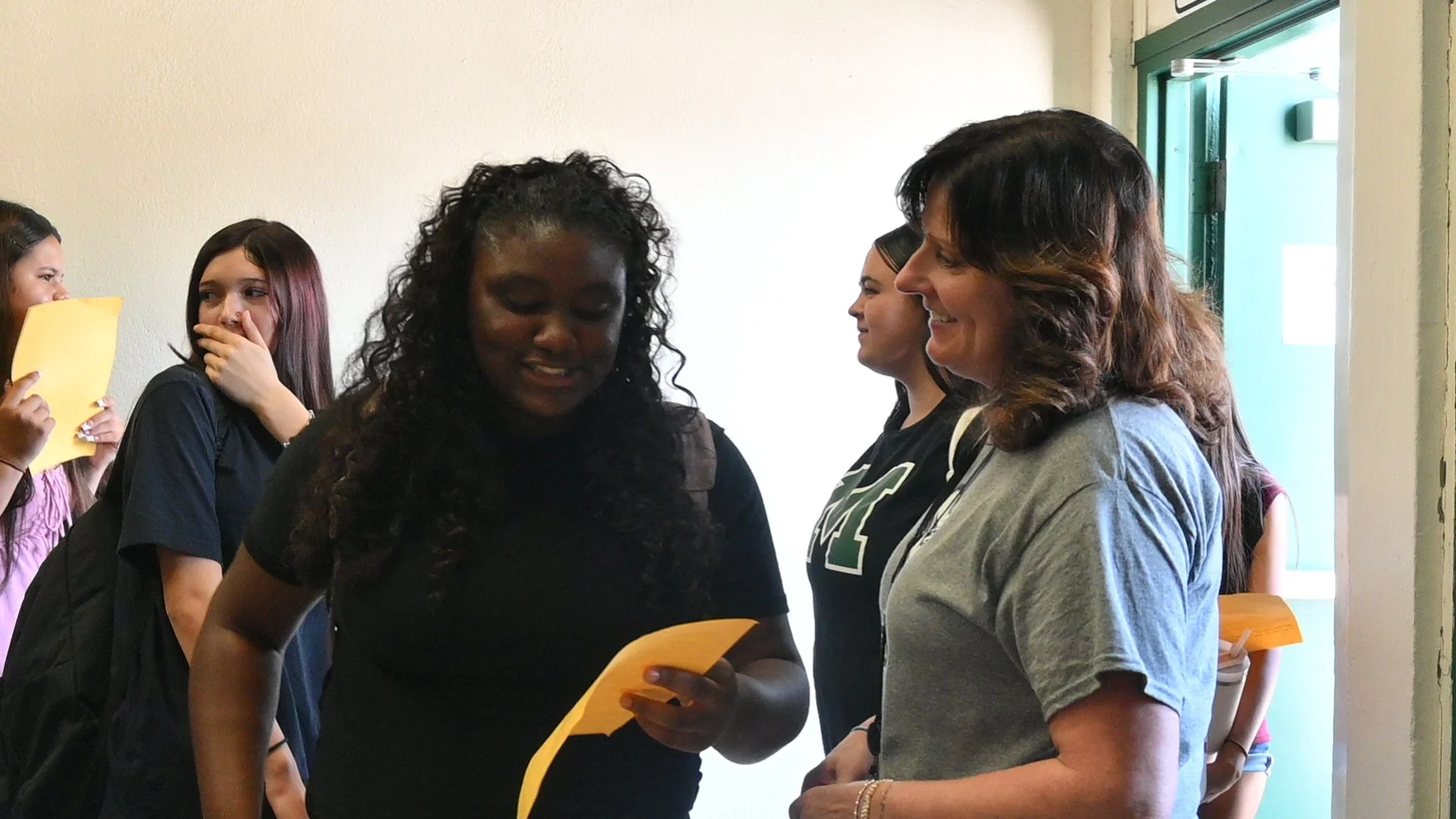Hill On Bills
Debbie Hill holding a conversation with a student during lunch on September 3, 2025 (Gage Smith/The Tower).
By GAGE SMITH
The Tower
MANTECA – Money runs the world and Debbie Hill, a business teacher at Manteca High, wants her students to be ready for it.
Hill’s lessons prepare students for life after high school – how to manage money, how the economy will affect you, and how inflation will impact consumers. Lessons on budgeting and economics are useful.
She has also managed the school’s student store for more than 20 years, providing students with experience behind the register and within the world of retail. There, students can purchase items like snacks, drinks and ice cream. Recently, the store has been relocated to the winter gym. The move has presented a new set of challenges to overcome, particularly the smaller size of the new location.
Instead of profits or sales, Hill finds that the most rewarding part of her job is the relationship she forms with her students.
“Getting letters from them, getting emails from students I've had in the past,” Hill speaks on her favorite memories at MHS. “That is the most meaningful thing to me.”
Debbie Hill posing in the winter gym outside the new location of the student store on September 3, 2025 (Gage Smith/The Tower).
Having previously worked in the corporate world, Hill provides a unique perspective for her courses.
“Mrs. Hill has helped me understand how the economy works,” We spoke with a student in Hill’s principles of business class. One of her most enthusiastic students, Junior Julyan Urena, described what he’s learned so far. “She’s showed me how to invest my money and make smart financial decisions.”
The Tower interviewed Hill on her role running the student store and teaching principles of business.
The Tower: How do you make your classes relevant to students' everyday lives?
Debbie Hill: We talk about economics, we talk about the stock market, we talk about inflation, we talk about budgeting. ... If you think about what's happening with trade agreements and how that's going to impact the cost of goods that we're purchasing ... we talk about what's going on in the world. It really makes it easy to apply what we're learning in class to what's happening in the world.
TT: What role does financial literacy play in your teaching?
DH: Well, it's a big part of what I'm teaching. I teach introduction to business and accounting. In Introduction to Business, it's very basic. We talk a little bit about budgeting, a little bit about economics… And then we do a deep dive in accounting where we actually talk about how you keep records for a business – money coming in, money going out – and how that impacts the business' financials.
TT: What are some challenges that you faced with the student store?
DH: Right now, it's space. It's very small. And there's a huge demand always at the beginning of the year before they get the off-campus passes out. We're just very small. We've got six kids working up front, two kids working in the back, just trying to keep up with the demand. Right now that's probably the biggest issue is keeping up with demand in the limited space that we have.
TT: What advice would you give to students pursuing a career in business?
DH: I would tell them to take as many elective classes that pertain to business because it's only going to help them when they go on to college and start studying it… It just gives you a nice foundation in taking business classes if you think you want to pursue that education.
TT: What do you hope that students take away from your class?
DH: I hope that they decide whether or not they want to pursue business, because I think that once you understand the fundamentals, it's either really interesting to you or it's not, which is fine, because then they can pursue something else. Also realizing how important in every aspect of our life that business impacts, whether or not you major in it… We don't want to admit it, but money is an important part of our future and being successful.


